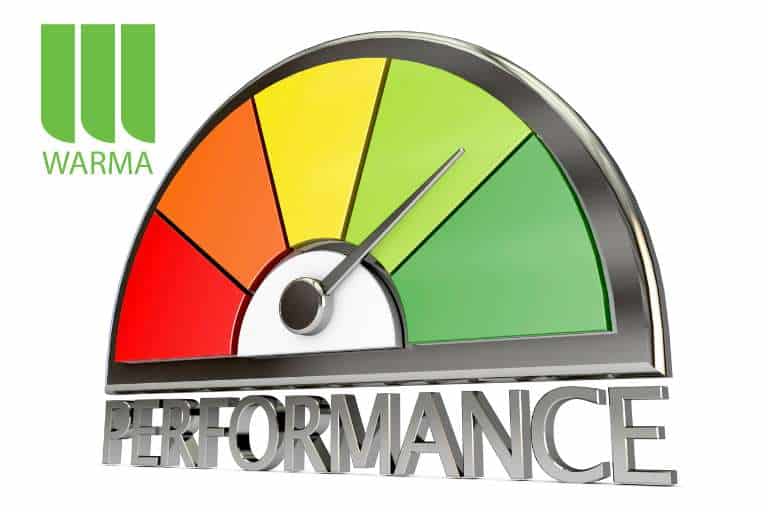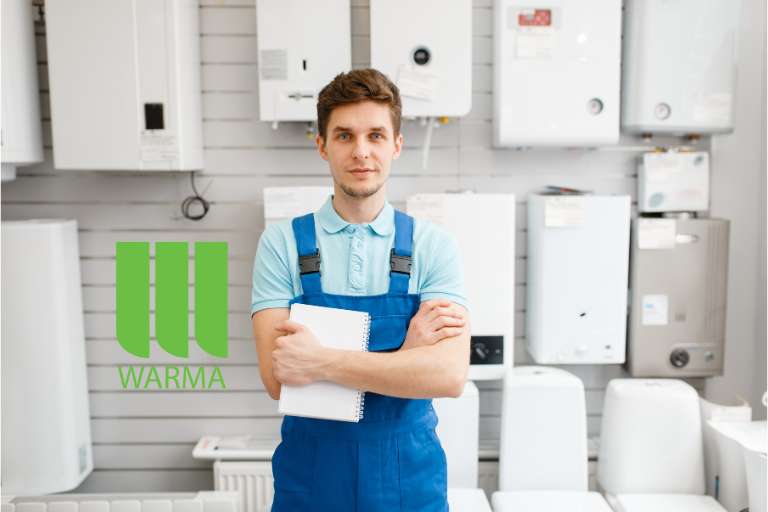Boiler replacement options: when it’s time to upgrade
Knowing when to replace your boiler can be a tough decision, but upgrading to a new, energy-efficient model can offer significant benefits. Not only will a new boiler run more efficiently, saving you money on your energy bills, but it can also reduce the likelihood of breakdowns and provide more reliable heating for your home. In this article, we’ll explore your boiler replacement options, helping you make an informed choice when it’s time to upgrade.
When should you consider replacing your boiler?
A boiler typically lasts between 10 and 15 years, but if your system is experiencing frequent issues, or it’s becoming less efficient, it might be time to consider a replacement. Here are a few signs that your boiler may need upgrading:
- Frequent breakdowns: If you’re calling out a heating engineer regularly to repair your boiler, these costs can quickly add up. A new boiler may save you money in the long term by reducing the need for repairs.
- Rising energy bills: As boilers age, they often become less efficient, meaning they use more energy to heat your home. If you’ve noticed a significant increase in your energy bills, upgrading to a modern, energy-efficient boiler could help reduce your costs.
- No longer meets your heating needs: If your household has grown, or you’ve added extra rooms or radiators, your existing boiler might be struggling to meet the increased demand. A new boiler can provide the power and efficiency needed to keep your home warm.
- Difficulty finding parts: If your boiler is an older model, you may find it increasingly difficult to source replacement parts. This can make repairs more expensive and time-consuming, so it might be more cost-effective to invest in a new boiler.
What are your boiler replacement options?
When replacing your boiler, it’s important to choose the right type and model for your home’s heating needs. There are many boiler replacement options for you to consider. Here are the most common boiler replacement options:
Combi boilers
Combi (combination) boilers are a popular choice for many homes in the UK. They provide both heating and hot water directly from the boiler, meaning there’s no need for a separate water tank or cylinder. Combi boilers are highly efficient and take up less space, making them ideal for smaller properties. They also provide instant hot water, so there’s no waiting for a tank to heat up. However, they may not be the best option for larger homes with multiple bathrooms, as they can struggle to meet the demand for hot water in more than one location at a time.
System boilers
System boilers are a good choice for homes with multiple bathrooms. They work with a hot water cylinder, providing a constant supply of hot water to multiple taps at the same time. System boilers don’t require a separate water tank, which makes them more compact than conventional boilers. They’re also efficient and reliable, but as they use a cylinder, they require a little more space than a combi boiler, and you’ll need to wait for the cylinder to reheat after use.
Conventional (regular) boilers
Conventional boilers are best suited to larger homes with high hot water demands. They work with both a hot water cylinder and a cold water storage tank, providing plenty of hot water for multiple taps and showers at once. While they take up more space than combi or system boilers, they can meet the needs of bigger households. Conventional boilers are also ideal for homes with older heating systems that may not be compatible with newer boiler types.
Benefits of upgrading your boiler
Replacing your old boiler with a new, modern model comes with several advantages, including:
- Increased efficiency: Modern boilers are far more efficient than older models, often achieving over 90% efficiency. This means they use less energy to heat your home, helping to lower your energy bills.
- Reliability: New boilers are designed to be more reliable, reducing the risk of unexpected breakdowns and the associated repair costs. With a new boiler, you’ll have peace of mind knowing your home’s heating system is dependable.
- Smaller carbon footprint: With improved efficiency comes reduced carbon emissions, making a new boiler a more environmentally friendly option. Upgrading your boiler can help you lower your household’s carbon footprint.

- Quieter operation: Older boilers can become noisy over time, but new models are designed to operate quietly, improving the comfort of your home.
- Smart technology integration: Many modern boilers can be integrated with smart thermostats and heating controls, allowing you to manage your heating more efficiently and remotely. This can help you tailor your heating to suit your schedule, further saving on energy bills.
Getting the right boiler for your home
Choosing the right boiler replacement options is important to ensure they meet your home’s heating and hot water needs. Our experienced engineers can assess your current system, discuss your requirements, and recommend the best boiler for your property. We’ll guide you through the entire process, from selecting the most suitable boiler to installation and aftercare, ensuring you receive a system that works efficiently for your home.
Conclusion
Upgrading to a new boiler is an investment that can improve the efficiency, reliability, and comfort of your home. Whether you choose a combi, system, or conventional boiler, the right choice will depend on your household’s heating needs, space, and budget. By replacing your old boiler with a modern, energy-efficient model, you can enjoy lower energy bills, fewer breakdowns, and a more environmentally friendly home. Contact us today to discuss your boiler replacement options and find the perfect solution for your home.







